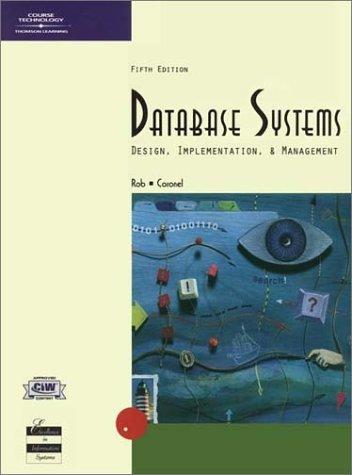Question
(4 points) When we prove a problem X is NP-complete, it means X can solve all other problems in NP (according to part 2 of
(4 points) When we prove a problem X is NP-complete, it means X can solve all other problems
in NP (according to part 2 of the above definition). I.e., it means a fast solver for X could be used
to solve any problem in NP in poly-time. Does being NP-complete also mean X can be solved
by any other NP-complete problem? I.e., does it mean a fast solver for any other NP-complete
problem could in turn be used to solve X? Explain.
Hint: your answer to part (b) should reference the two parts of the definition of NP-completeness
1. X is in NP.
2. Any problem in NP is poly-time reducible to X. (I.e., for all Y NP, Y P X.)
Step by Step Solution
There are 3 Steps involved in it
Step: 1

Get Instant Access to Expert-Tailored Solutions
See step-by-step solutions with expert insights and AI powered tools for academic success
Step: 2

Step: 3

Ace Your Homework with AI
Get the answers you need in no time with our AI-driven, step-by-step assistance
Get Started


